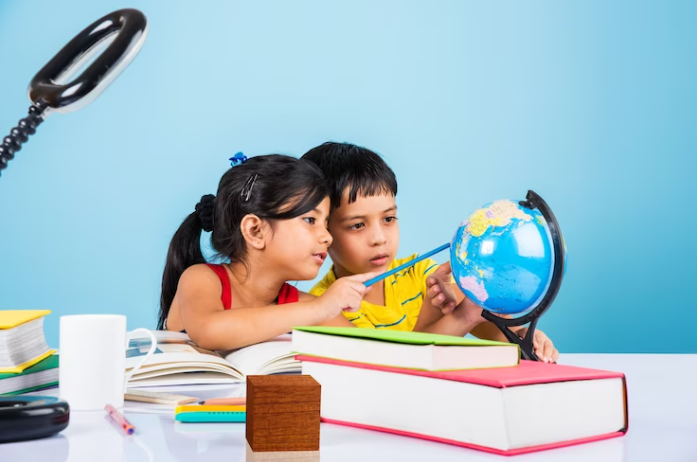In today's rapidly evolving world, social skills play a crucial role in a child's development. As preschoolers embark on their journey of social interaction, it's essential to provide them with the tools and guidance they need to navigate the complexities of human relationships. In this blog, we will explore effective strategies to help preschoolers develop essential social skills such as sharing, empathy, and conflict resolution. These skills are not only vital for their immediate well-being but also lay the foundation for future success in both personal and professional aspects of life.
Understanding the Importance of Social Skills in Preschoolers

Before we delve into specific strategies, let's understand why fostering social skills in preschoolers is so vital. These early years are a critical period for social development, and here's why:
Social skills are the building blocks of relationships:
They enable children to form bonds, make friends, and maintain positive connections throughout their lives.
Emotional intelligence:
Developing social skills helps preschoolers become emotionally intelligent individuals, which is a predictor of future success and happiness.
School readiness:
Children with strong social skills are better equipped to succeed in school, as they can collaborate with peers, follow instructions, and communicate effectively.
Conflict resolution:
Learning how to handle conflicts peacefully at a young age sets the stage for a lifetime of constructive problem-solving.
Strategies to Foster Sharing
Sharing is a fundamental social skill that preschoolers need to develop. Here are some strategies to encourage sharing:
Model Sharing:
Children often learn by imitating adults. Show them the importance of sharing by sharing things with them and with others.
Turn-Taking:
Teach the concept of taking turns during playtime. This can be applied to games, toys, or even sharing snacks.
Use Timers:
Introduce a timer during play to help children understand that they will have a chance to play with the toy or item after a certain duration.
Praise and Positive Reinforcement:
Praise and reward children when they share willingly. Positive reinforcement encourages them to repeat the behavior.
Cultivating Empathy
Empathy is the ability to understand and share the feelings of others. It's a cornerstone of healthy relationships. Here are ways to nurture empathy in preschoolers:

Read Books:
Choose age-appropriate books that explore emotions and different perspectives. Discuss characters' feelings and situations with your child.
Role-Playing:
Engage in role-playing scenarios where you and your child take on different roles, allowing them to experience different emotions and perspectives.
Talk About Feelings:
Encourage your child to express their feelings and ask open-ended questions like, "How do you think they felt when that happened?"
Volunteer:
Involve your child in age-appropriate volunteer activities to expose them to different life situations and foster compassion.
Teaching Conflict Resolution
Conflict resolution is a vital skill that helps preschoolers navigate disagreements and maintain healthy relationships. Here's how to teach it:
Active Listening:
Teach children the importance of listening to others when conflicts arise. Use phrases like, "Tell me what happened," to encourage active listening.
I-Statements:
Encourage the use of "I" statements, such as "I feel upset when…" instead of aggressive language during conflicts.
Problem-Solving:
Guide children through the process of finding solutions to conflicts. Encourage them to brainstorm ideas and evaluate their consequences.
Model Conflict Resolution:
Demonstrate how to handle conflicts peacefully within your own relationships, so children can learn by example.
Promoting Social Interaction
Social interaction is the foundation of developing social skills. Here are strategies to promote healthy interactions:
Playdates:
Arrange playdates with other children to provide opportunities for social interaction and practice.
Group Activities:
Enroll your child in group activities like sports, art classes, or music lessons to encourage teamwork and cooperation.
Structured Play:
Participate in structured activities such as board games or puzzles that require cooperation and sharing.
Encourage Communication:
Teach your child how to express themselves clearly and respectfully when interacting with others.
Setting Realistic Expectations
Understanding that preschoolers are still developing their social skills can help manage expectations. Keep these tips in mind:
Age-Appropriate Behavior:
Recognize that some behaviors, like not sharing, are typical for their age group, and children may outgrow them with time.
Patience and Consistency:
Be patient and consistent in reinforcing social skills. It takes time for children to develop these skills fully.
Encourage Independence:
Allow children to make choices and decisions within boundaries, fostering a sense of autonomy.
Seeking Professional Help
In some cases, children may face challenges in developing social skills that go beyond typical developmental variations. If you notice persistent issues or concerns, it's essential to consider seeking professional guidance from a pediatrician, child psychologist, or other qualified experts. Here are some situations where professional assistance might be warranted:
Extreme Social Withdrawal:
If your child consistently avoids social interactions and isolates themselves from peers, it could be a sign of underlying social anxiety or other emotional issues.
Aggressive Behavior:
When a child displays persistent aggressive behavior towards others, such as hitting, biting, or bullying, it's crucial to address these actions promptly.
Difficulty with Empathy:
If your child struggles to understand or express empathy, making it challenging for them to connect with others emotionally, a professional can help assess and provide guidance.
Communication Delays:
Some children may have speech or language delays that hinder their ability to interact and communicate effectively with their peers. Speech therapists can offer valuable support.
Unresolved Conflicts:
If your child repeatedly faces conflicts that they cannot resolve independently and it affects their well-being or relationships, a child psychologist can assist in teaching effective conflict resolution strategies.
Social Development Milestones:
If your child consistently falls significantly behind their peers in achieving social development milestones, professional evaluation can help identify any underlying issues and provide intervention as needed.
Conclusion

Supporting social skills in preschoolers is a crucial aspect of their overall development. By fostering sharing, empathy, and conflict resolution, we equip them with essential tools to navigate the complexities of human relationships. Remember that every child develops at their own pace, so be patient and consistent in your efforts. With the right strategies and a nurturing environment, you can help your child lay a strong foundation for a socially successful future.




